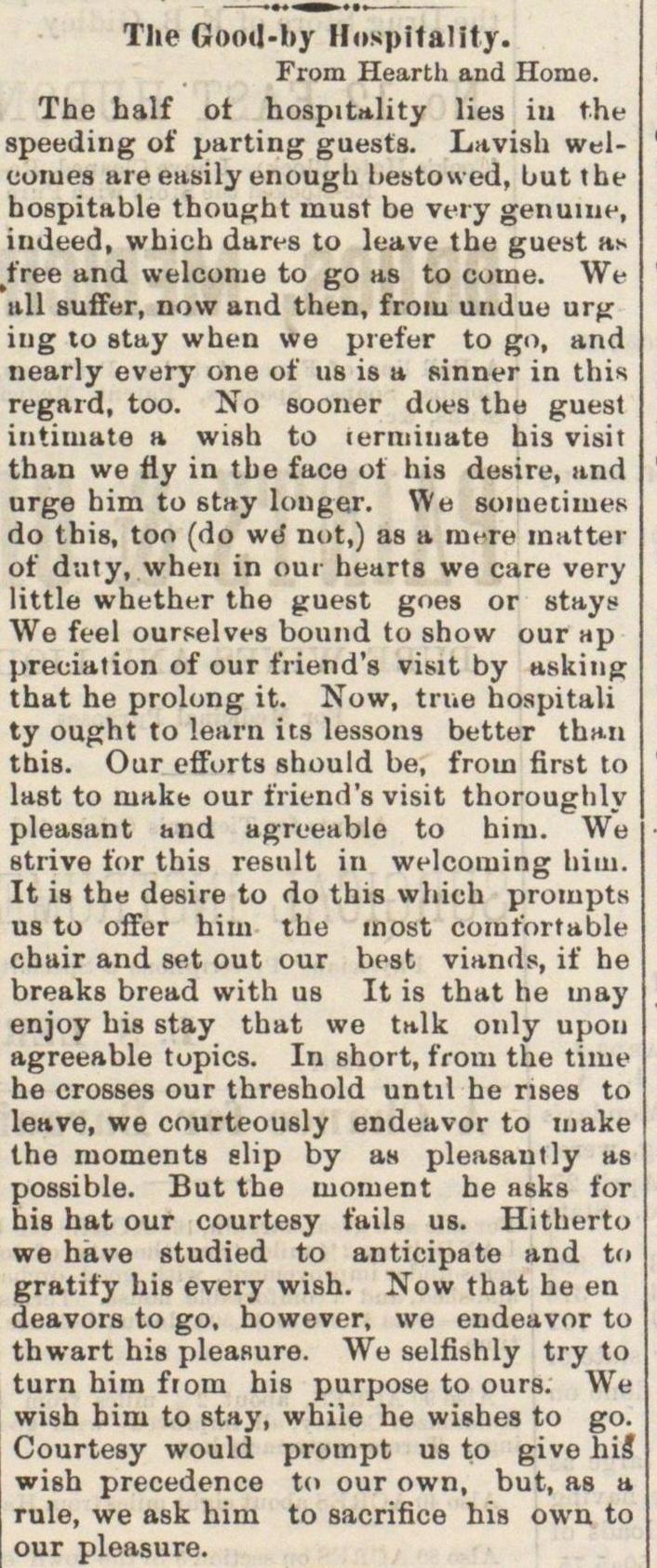The Good-by Hospitality

The half ot hospitality lies iu the peeding of parting guests. Lavish welCüiue8 are easily enough lie&totved, but the lospitable thought must be very genume, ndeed, which dares to leave the guest (ts ree and welcome to go as to coiné. We ill suffer, now and tlien, from unduu urjr ng to stay when we prefer to go, and ïearly every one of us is a sinner in this regard, too. No sooner does the guest ntiuiate a wish to leriiiinate bis visit than we fly in the face ot nis desire, and urge him to stay longer. We sometimes do this, too (do we" not,) as a mere matter of daty, when in our hearta we care very ittle whether the guest goes or stays We feel ourselves bound to show our Hp jreciaiion of our friend's visit by asking hat he prolong it. Now, true hospitali ty ought to learn its Iessoii9 better thun ;his. Our efforts should be, froui first to ast to make our friend's visit thoroughly jleasant and agrceable to him. We strive tor this resnlt in welcoming him. [t is the desire to do this wliich prompts us to offer him the most comportable chuir and set out our best viands, if he areaks bread with us It is that he may enjoy bis stay that we talk only upou agreeable topics. In short, from the time ie crosses our threshold until he nses to eave, we courteously endeavor to make the moment slip by as pleasantly as aossible. But the moment he asks tor lis hat our courtesy fails us. Hitherto we have studied to anticipate and to gratify his every wish. Now that he en deavors to go, however, we endeavnr to thwart his pleaBure. We selfishly try to turn him fiom his purpose to ours. We wish him to stay, while he wishes to go. Courtesy would prompt us to give his" wish precedence to our own, but, as a rule, we ask him to sacrifice hia own to our pleasure.
Article
Subjects
Old News
Michigan Argus